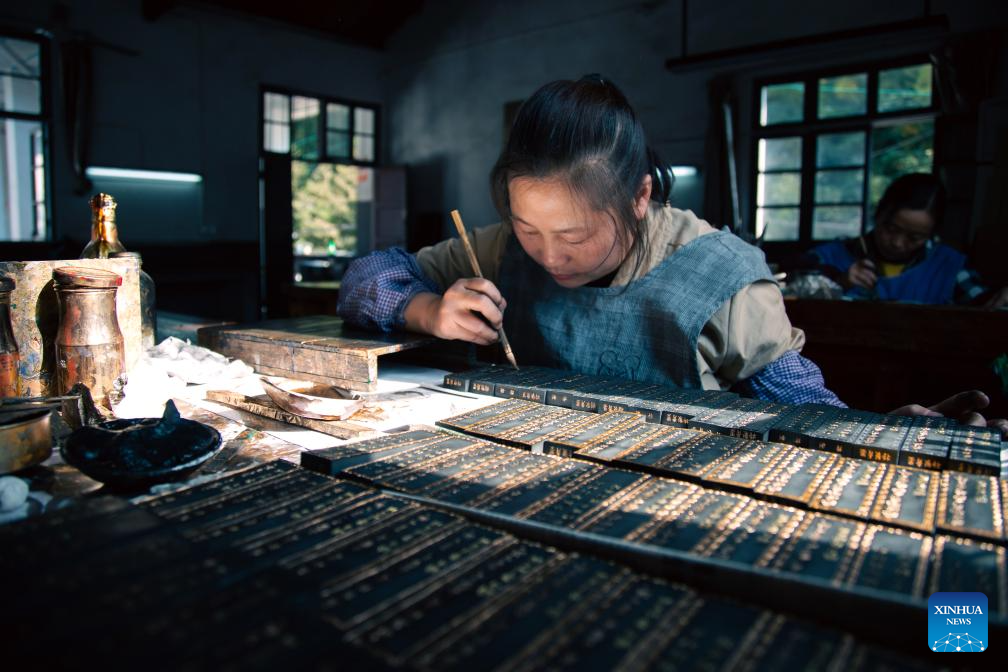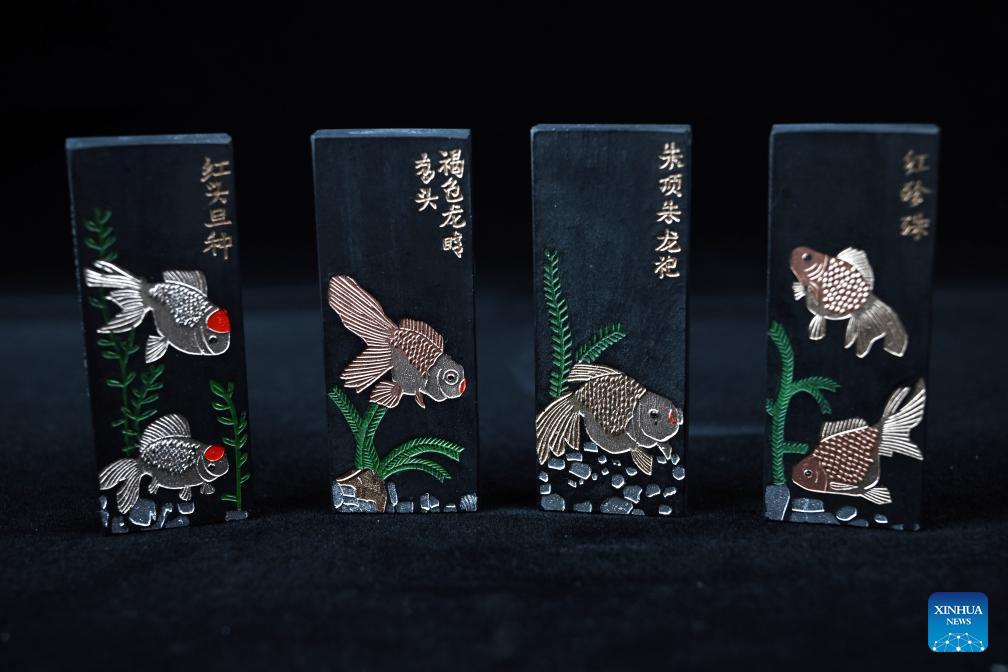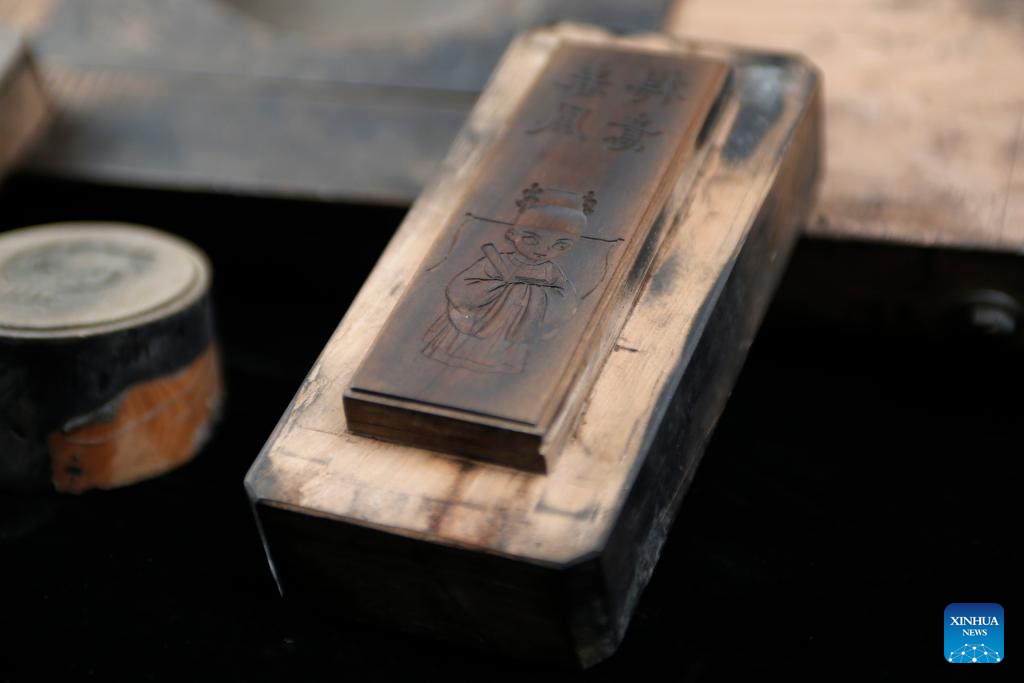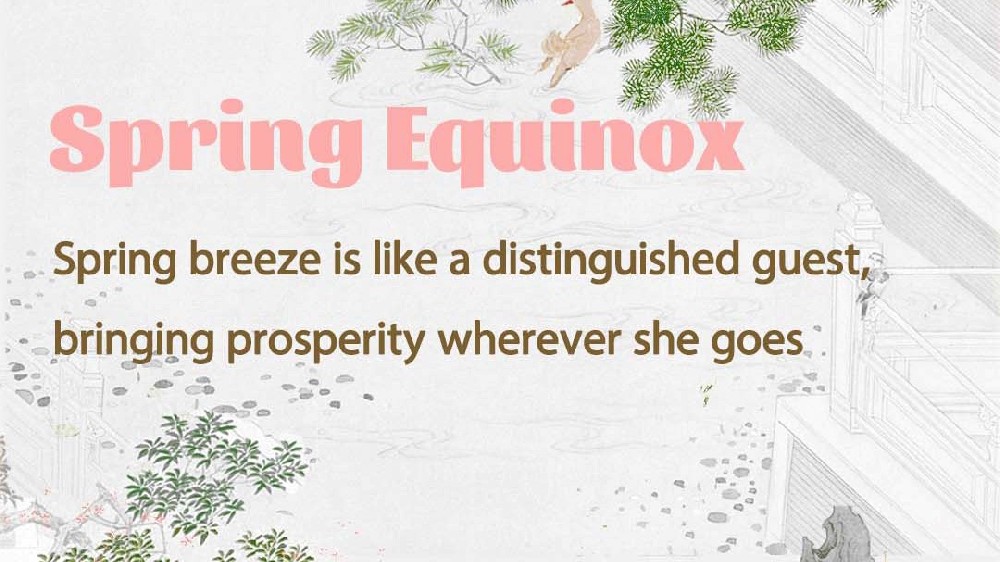Pic story: inheritor of Huizhou Ink
Shexian County, located in Huangshan City of east China's Anhui Province, is known as the "Capital of Ink" dating back to the Southern Tang Dynasty (937-975). After it was renamed Huizhou in 1121, the term "Huizhou Ink", or "Hui Mo" in Chinese, stands for high-quality ink product in China. Huizhou Ink, a type of paint usually applied in traditional Chinese calligraphy and brush painting, is mainly made of pine soot, tung oil soot or lacquer soot, and colloid, and mixed with more than a dozen precious ingredients such as musk, gold foil and pearl powder. Due to its high-standard making procedures, Huizhou Ink is lustrous black in colour, solid in quality, anti-tinting on paper, unsticky with brush, long-lasting with time, fragrant in smell and mothproof in storage. In June 2006, the making craft of Huizhou Ink was listed as one of the first batches of China's national-level intangible cultural heritages.

The Ancient Hu Kaiwen Ink Factory, located in Shexian County, was originated by Hu Kaiwen, one of the four great Huizhou Ink masters in the Qing Dynasty (1644-1911). Experiencing ups and downs over the centuries, the factory finally survives and has taken on a new look nowadays. Born in a family of Huizhou Ink making, Zhou Jian started to know the craft at an early age when growing up in the yard of the factory. In 2006, after graduation, he returned to the Ancient Hu Kaiwen Ink Factory at the encouragement of his father, Zhou Meihong, the factory manager and a national-level inheritor of Huizhou Ink making. From then on, he began to learn the crafts and quickly mastered them. In 2009, he was recognized as a Huangshan city-level inheritor of Huizhou Ink making. To Zhou Jian, he believes that the exquisiteness of ink stick lies on the quality of molds and raw materials. "Each step in our making process is indispensable because it's like a chain where each link is connected," said Zhou Jian.
"Faithful to traditions, innovative in styles" is the ink making concept followed by Zhou Jian. Since 2017, he has been developing cultural and creative products every year, some of which have received multiple awards. In 2022, the Ancient Hu Kaiwen Ink Factory's ink stick products "Pictures of Tilling and Weaving" won the gold medal during the Panama Pacific International Exposition, 100 plus years after its products first won the same prize in 1915. "The product costs us 13 years to make, and the prize encourages us a lot, testifying that the crafts aren't lost in the hands of later generations," said Zhou Jian.

Seeing a growing number of people getting interested in the craft, Zhou Jian set up a team on an educational tourism project in which free introductions on the history and making of Huizhou ink are provided to people who come to visit the factory. Also in the project, people can experience ink making in the guidance of workers here. Over the years, the factory has altogether received 400,000 plus students and signed agreements with 50 plus travel agencies across the country. Moreover, Zhou Jian has designed professional classes on Huizhou ink with various schools and colleges. "Only when the young people know our crafts can they be passed down by generations," Zhou Jian said, "The key of protecting our intangible cultural heritage is to integrate it into modern life and make it known and loved by youngsters."
In 2020, due to the influence of the COVID-19 pandemic, Zhou Jian brought his ink products to e-commerce platforms and opened live broadcast. The monthly sales on these platforms have increased from less than 10,000 yuan (about 1367 U.S. dollars) in the beginning to more than 1670,000 yuan (about 228,000 U.S. dollars) nowadays. In order to attract more youngsters, he designs ink stick molds preferred by them, invents products giving ink more quickly, creates new Huizhou ink cultural and creative products and buys ancient ink making books at a high cost to get inspiration. Looking toward to the future, Zhou Jian deems that the biggest challenges lie in the scarcity of handwork labors and the lack of raw materials, but he is confident in the prospect of Huizhou ink. "With people's growing needs in spiritual pursuits and cultural attainment, writing with ink will be a new lifestyle in our modern life," Zhou Jian said.

Related articles
-
 Temple fair held to honor folk tradition
Temple fair held to honor folk traditionMore
-
 Huaxian Shadow Play: A Treasure of Puppetry
Huaxian Shadow Play: A Treasure of PuppetryMore
-
 Traditional embroidery promotes ‘China chic’ in global fashion
Traditional embroidery promotes ‘China chic’ in global fashionMore
-
 Mural artist transforms hometown into rural art gallery
Mural artist transforms hometown into rural art galleryMore
-
 Terracotta artist rekindles lost light on ancient skills
Terracotta artist rekindles lost light on ancient skillsMore
-
 Sculptor picks up where his dad left off
Sculptor picks up where his dad left offMore
